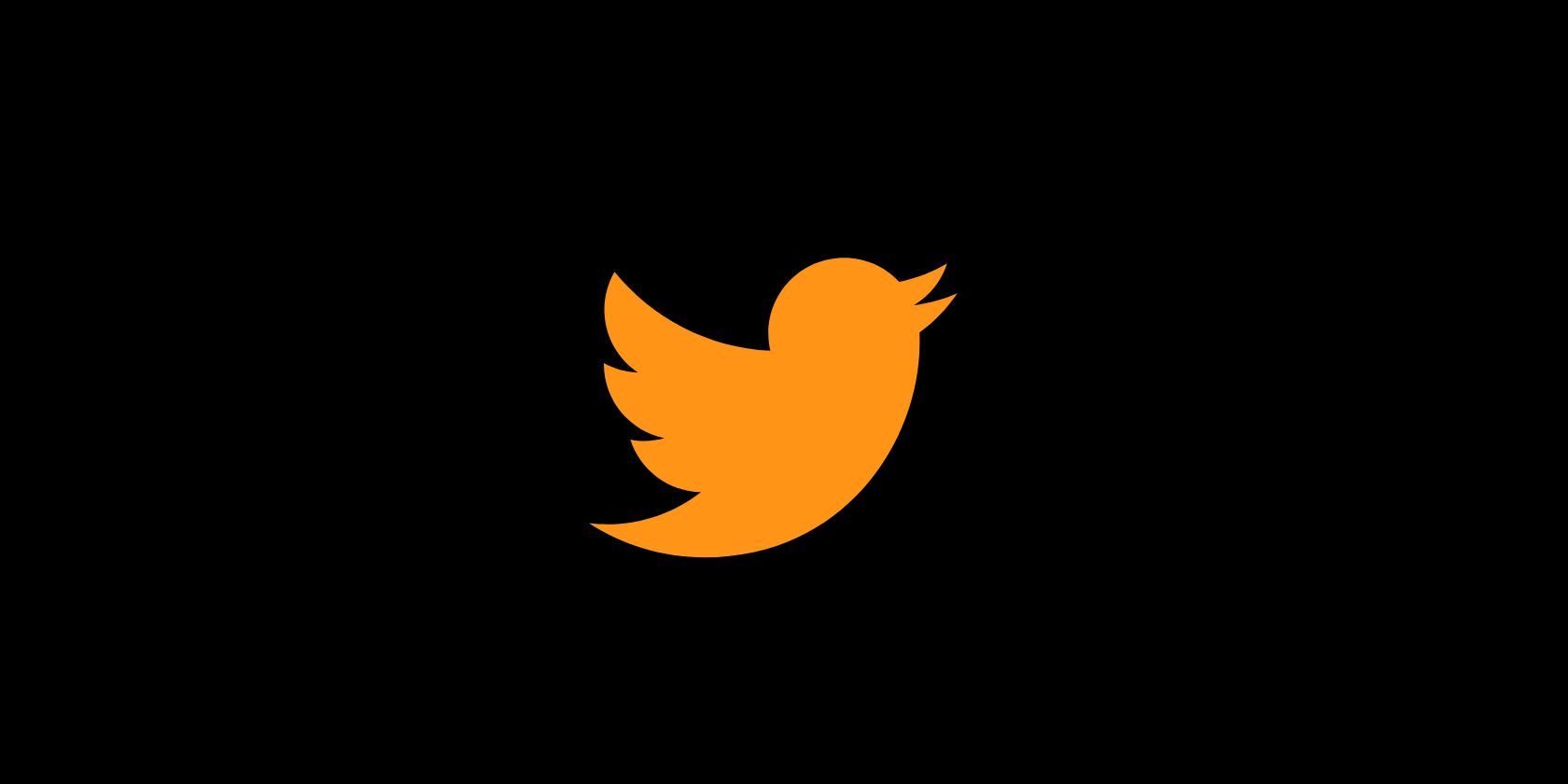Ever Crisis Twitter - What It Means For You
Have you ever stopped to think about how words shape our daily conversations, especially on platforms like Twitter? It's a place where thoughts fly by at a quick pace, and sometimes, a single word can hold a lot of weight. We are going to look closely at the word "ever" and how it shows up in the constant flow of messages on Twitter. This word, which means "always" or "at any point in time," has a special feel to it when you consider the fast-moving world of online chat, and so it's almost a topic worth exploring.
When we talk about "ever," we are really talking about something that lasts for a long time, or something that happens at any moment, past or future. Think about how many times you see something that seems to be always there, or a question that asks if something has happened at any point. This simple word carries with it ideas of endlessness and time. It brings up questions about things that stick around, or moments that just keep happening, which, you know, is quite interesting when you consider how quickly things move on social media.
So, what happens when this idea of "ever" meets the very active space of Twitter? It makes us think about how things stay the same, how things change, and what we might expect to see. This look at "ever crisis twitter" is not about a sudden event, but more about reflecting on the lasting nature of words and ideas in a place that is always moving. We'll explore how this small word helps us make sense of the big stream of information, and how it points to things that might seem to be present all the time, or perhaps just at a specific moment, in a way that really makes you pause.
Table of Contents
- What Does "Ever" Really Mean on Twitter?
- The Lingering Presence of "Ever" in the Twitter Stream
- Is Anything Truly "Ever" Lasting on Twitter?
- How Does "Ever" Shape Our Twitter Conversations?
- Understanding "Ever" in the Context of Twitter's Pace
- Can We "Ever" Fully Grasp Twitter's Shifting Nature?
- The Many Faces of "Ever" on the Twitter Platform
- When Does "Ever" Signal a Shift on Twitter?
What Does "Ever" Really Mean on Twitter?
When we talk about the word "ever," its basic meaning is "always." This idea of "always" takes on a rather interesting flavor when we think about Twitter. Is anything really "always" present on that platform? Things come and go so quickly, it seems. A trending topic can be here one moment and gone the next, yet, the underlying patterns of how people talk, or what topics they care about, might stick around for a bit. So, in some respects, "ever" could point to those lasting ways of being, those habits of sharing and reacting that tend to be pretty consistent.
My text tells us that "ever" can mean "than at any time before." This comparative sense is quite interesting for "ever crisis twitter." Think about how often people on Twitter talk about something being "better than ever" or "worse than ever." This use of the word helps people express strong feelings about how things are now, compared to how they used to be. It shows a kind of continuous evaluation, a constant measuring of the present against all that has come before. This is, you know, a pretty common way people make sense of the world, especially when things change so quickly.
Then there are the simple examples of how "ever" gets used in a sentence, as my text points out. Things like "Did you ever see anything like it?" or "How can I ever get there?" These are common ways people express surprise or a feeling of being stuck. On Twitter, this translates into tweets that ask big questions, or posts that show amazement at something that has just popped up. It’s a way of bringing a sense of all-time experience into a very short message, making the immediate moment feel a little bit bigger, which is actually quite clever.
The Lingering Presence of "Ever" in the Twitter Stream
The dictionary definitions of "ever" include ideas like "frequently" and "forever," which are both pretty strong words. When we consider the "ever crisis twitter" idea, these meanings help us think about what truly stays with us in the stream of tweets. Some ideas, some feelings, or even some ways of speaking seem to pop up again and again. They are not just fleeting moments; they have a kind of lasting quality, a presence that feels almost constant. It's like a thread that runs through the many different conversations.
My text mentions "Ever hoping to strike it rich." This points to a kind of constant aspiration, a wish that never really goes away. On Twitter, you might see this in how people talk about their dreams, their goals, or even just their daily efforts. There is an "ever" present hope, a quiet wish that things will get better, or that something good will happen. This underlying current of wanting something, of always looking forward, is a very human thing, and it shows up in all sorts of ways on the platform, you see.
The idea of "ever" as "always" or "frequently" also shows us how certain topics or kinds of interactions tend to repeat themselves. It's not a crisis in the usual sense, but more like a deep look at what is consistently there. Think about how certain news stories seem to reappear, or how certain types of jokes or memes cycle through the platform. This is the "ever" in action, the way things keep coming back, sometimes with a new twist, but still holding onto a familiar shape. It's a pattern that is, in fact, quite noticeable if you pay attention.
Is Anything Truly "Ever" Lasting on Twitter?
This question is at the heart of thinking about "ever" in the context of Twitter. My text tells us "ever" can mean "at any period or point of time, past or future." This broad sweep of time makes us wonder if anything truly lasts forever on a platform that moves so fast. A tweet is here now, and then it's buried under thousands of others. Yet, some ideas, some phrases, some bits of content seem to stick. They get shared again, they get remembered, they get talked about years later. This is where the "ever" really shows its muscle.
Consider the phrase from my text: "no man is ever the happier for injustice." This is a timeless truth, a statement that holds true no matter when or where you say it. On Twitter, such statements, when shared, carry a weight that goes beyond the moment. They speak to something that is "ever" true about human experience, about right and wrong. These kinds of messages, while perhaps not trending for long, have a staying power, a quiet strength that resonates with people over a longer stretch of time, which is really something to think about.
The concept of "ever" also appears in how people use language on Twitter, especially in negative, interrogative, or comparative sentences, as my text points out. For example, "Did you ever see anything like it?" or "I've never been so surprised." These ways of speaking use "ever" to give a sense of scale, to say that something is unlike anything that has happened before. It shows a kind of extreme feeling, a strong reaction to something new or unusual. This is how people express the unique nature of a moment, or how they compare it to all their past experiences, and it's quite common, you know.
How Does "Ever" Shape Our Twitter Conversations?
The way we use "ever" often shapes the depth of our conversations on Twitter. When someone asks, "Did you ever think this would happen?" they are inviting a reflection on history, a look back at past expectations. This kind of question makes the conversation richer, pulling in memories and experiences that go beyond the immediate tweet. It shows how "ever" can act as a bridge between the fleeting present and the long past, making the discussion feel more substantial, which is pretty neat.
My text also brings up the idea of "ever" in the context of learning, mentioning "vocabulary.com can put you or your class on the path to systematic vocabulary improvement." While this is about learning words, it connects to "ever crisis twitter" by suggesting that understanding the nuances of language is an ongoing process. On Twitter, we are constantly learning new ways of speaking, new slang, new abbreviations. It's an "ever" present learning curve, a continuous effort to keep up with how people talk and what they mean. This constant need to learn is a big part of being on the platform, honestly.
Think about how people use "ever" to express a wish or a hope, like "ever hoping to strike it rich." This reflects a persistent human desire. On Twitter, this might show up in posts about aspirations, or in the sharing of dreams for the future. It’s a subtle but important part of the conversation, a quiet undercurrent of longing or ambition that is "ever" there. This consistent thread of human hope, you know, makes the platform feel more connected to real life, beyond just the quick updates.
Understanding "Ever" in the Context of Twitter's Pace
Twitter moves at a very fast pace, and understanding "ever" within this flow is quite a task. My text mentions "formal or archaic" uses of "ever" meaning "always, frequently, forever." While Twitter is far from formal or archaic, the idea of "always" or "frequently" still applies to certain behaviors or content types. Some trends, while not truly "forever," might stick around for days or weeks, appearing "frequently" enough to feel like they are "always" there. This is the subtle side of "ever" on Twitter, the things that keep coming back, even if they don't last for all time.
The example of "the lord treasurer, who ever secretly feigned himself to be a moderator and mollifier" from my text, though from a different setting, can be thought of in terms of "ever crisis twitter" by looking at the "ever" present roles people play. On Twitter, some users might always take on a specific role, perhaps as a peacemaker, or as someone who always stirs things up. These are "ever" present personalities, consistent in their approach, even if their specific words change. It shows how personal styles and intentions can be quite lasting, regardless of the quick flow of messages, you see.
My text also highlights that "ever" can appear "at any period or point of time, past or future." This broad definition makes us consider how Twitter captures moments across time. A tweet from years ago can suddenly resurface, bringing a past moment into the present. This means that on Twitter, the past is "ever" available, "ever" ready to be brought back into the current conversation. It gives the platform a kind of memory, a way for things to live on, even if they are not actively being discussed right now, which is pretty cool, actually.
Can We "Ever" Fully Grasp Twitter's Shifting Nature?
It's a big question, whether we can "ever" truly understand something as dynamic as Twitter. The platform is always changing, always adapting. Yet, the word "ever" suggests a kind of persistence, a continuity that underlies all the shifts. My text provides a lot of ways to think about "ever," from its meaning of "always" to its use in questions and comparisons. These different ways of seeing "ever" help us look for the constant threads within Twitter's constantly moving picture. It's like trying to find the steady beat in a very fast song, which, you know, can be a bit of a challenge.
Consider the phrase "Better/faster/happier, etc than at any time before." This comparative use of "ever" is something you see a lot on Twitter. People are always talking about how things are improving or getting worse, how something is quicker or more enjoyable than it "ever" was. This constant comparison is a way people try to make sense of the rapid changes. It’s an "ever" present way of evaluating the platform itself, and the content on it, always looking for what’s new and how it stacks up against what came before. This is, in fact, a very natural human tendency.
The dictionary definitions page, as mentioned in my text, includes "all the possible meanings, example usage and translations of the word ever." This tells us that "ever" is a word with many layers. On Twitter, this means that when someone uses "ever," they might mean something different depending on the context. It could be a question about history, a statement about something lasting, or an expression of surprise. This rich variety of meanings for "ever" adds a lot of depth to the short messages people share, making the "ever crisis twitter" topic quite interesting to explore.
The Many Faces of "Ever" on the Twitter Platform
The word "ever" has many faces on Twitter, reflecting its various meanings. Sometimes it means "always," as in "this topic is ever present." Other times it means "at any point," as in "have you ever seen such a thing?" Each use gives a slightly different shade to the message, adding a layer of meaning that goes beyond just the surface words. This is where the true richness of language comes out, even in a short-form setting like Twitter, and it's something we perhaps don't always think about.
My text mentions "How can I ever get there in." This phrase points to a feeling of aspiration or a challenge. On Twitter, this might show up in tweets about personal goals, or about the difficulties of reaching a certain aim. It’s an "ever" present human struggle, a desire to move forward or to achieve something, that finds its voice in short messages. This persistent striving, you know, connects people through shared experiences of trying to reach a goal, which is pretty powerful.
The idea of "ever" as something that means "always" or "frequently" also relates to the consistent themes that pop up on Twitter. Certain discussions, certain types of content, or certain ways of interacting seem to be "ever" present. They might change in specific details, but the core idea or feeling remains. This is not a crisis in the sense of something going wrong, but rather a chance to look closely at what truly lasts, what patterns are "ever" there, even in a place that seems to be in constant motion. It's a subtle but important point, honestly.
When Does "Ever" Signal a Shift on Twitter?
Sometimes, the word "ever" can actually signal a shift, or a turning point, in a conversation on Twitter. When someone says, "Did you ever think we'd see this?" they are pointing to a change, something that was unexpected. This use of "ever" looks back at a previous state and highlights how different the current situation is. It's a way of marking a moment of transition, of showing that things are not as they "ever" were, and it can really make people stop and think.
The use of "ever" in negative sentences, like "no one is ever happy with that," can also signal a kind of fixed state, a lack of change. It means that something is consistently a certain way, and that it is not expected to shift. On Twitter, this might show up in expressions of frustration or disappointment about something that seems to be "ever" the same, despite hopes for change. This highlights a persistent issue, a challenge that seems to stick around, which is quite often the case, really.
Ultimately, looking at "ever crisis twitter" means taking a closer look at how a simple word like "ever" carries so much meaning in the fast-paced world of online communication. It helps us see what might be constant, what is always happening, and what shifts in surprising ways. It reminds us that even in a stream of quick messages, there are deeper layers of time and meaning, and that, you know, is pretty fascinating to consider.



Detail Author:
- Name : Juwan Jacobi
- Username : antwon87
- Email : jalyn27@gmail.com
- Birthdate : 1982-05-28
- Address : 54566 Kuphal Points Apt. 366 Kaylahborough, RI 95250-2293
- Phone : 540-749-0281
- Company : Kassulke-Homenick
- Job : Aircraft Rigging Assembler
- Bio : Iure sed in sapiente ipsa tempora veritatis quasi. Ea et sed earum consequatur. Accusamus qui saepe deserunt perferendis dolore et.
Socials
tiktok:
- url : https://tiktok.com/@antwon.hudson
- username : antwon.hudson
- bio : Consequatur aspernatur molestias earum est debitis libero.
- followers : 2561
- following : 2868
twitter:
- url : https://twitter.com/antwon289
- username : antwon289
- bio : Autem est voluptate adipisci aut vel. Maiores aliquam aut culpa qui et. Corporis consequuntur ab enim assumenda ut dolore aut. Illum reiciendis a nobis.
- followers : 5050
- following : 1886